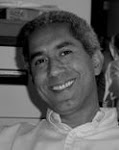.
.
‘Ambition is the death of thought’ (Wittgenstein)
‘Imagination rules the world’ (Napoleon I)
.
I'm always pushing for that quantum leap, not because I'm ambitious but because I have imagination.
Some folks’ minds naturally incline to big pictures, big ideas; some don’t. It’s not hubris or even ambition, in fact it the exact opposite. It’s actually humility. Humility is being honest about who and what you are and offering it unreservedly, without being ever so ever so ‘umble about it. If you’re a genius say it loud, like James Brown, holler it from the rooftops; and people can knock you down if you're wrong and if they’re that way inclined. Uriah Heep was a self-obsessed ego-maniac, like so many who dissemble behind self-effacing masks of false humility whilst coveting a life of unmerited privilege. Napoleon was humble.
Einstein was humble, Wilde and Wittgenstein too. These are the masters of true humility in our world. Mohammad Ali – the self-declared greatest of all time. He just tore open his shirt and said ecce homo, behold, the man, this is me, and he let all the smug Uriah Heeps sneer and patronize behind their fake smiles.
Maybe that's why I prefer Rothko to the great 18th Century miniaturists who took the clarity of finest brush-work to its absolute zenith: He captured a vision of what being might actually mean –rumbling deep in the mist, abstracted from subject-hood or object-hood; while they captured life as it was – objectively - eyelash for eyelash, hair for hair. He cared as little for hairs and eyelashes as they did for visions of undifferentiated being.
The miniaturists reflect a cold detached meanness that instructs us to account for every pore and follicle - like a taxman. While Rothko resounds with the warm generosity of ‘here’s a rich ocean of possibilities for you to define – go ahead, bask in it’.
Is there a certain hubris in trying to imitate nature to the finest detail? The people who first framed Judaism and Islam certainly seemed to suggest so. They were happy to relate ideas of the big picture, of what being means and of our ultimate role in the universe, but they frowned on graven images and literalism (in name, image or interpretation). They venerated the indistinct space around the ineffable, that rumbling pulsating space that Rothko evokes so well; they felt no need to detail the DNA of creation like ingredients on a soup tin. They were poets not academics, creatives not confiners. (My, how some things do change.) Chances are they would have liked Rothko too.
James Brown, Ali, Wilde, Wittgenstein, Einstein, Napoleon … You don’t have to be from an ‘outsider’ minority group (Gay, Black, etc.), but maybe it helps. Why? Because the oppressor has nothing to announce but the confinement of genius and the maintaining of the status quo. World-shakers like Napoleon, Wilde, Einstein and James Brown were genius not just because they needed to make the world more meaningful so they could live at all, but because they proved that clarity comes to us through the brume of imagination, dream, poetry and art, its illumination is that of the soft candle light not of the harsh floodlight.
The point: don’t be embarrassed to declare your genius, but realise that to fulfil it you must be comfortable in thick mist sometimes, at ease with uncertainty. And be aware that if you do you are declaring an intention to change the world in some way, big or small, in order to render it more meaningful. And nothing can be more profoundly revolutionary than that. Rothko’s big pictures remind us of the need to do that, artful miniatures don’t.
However big or small the canvas, there is something natural and honest, humble and generous about the creative genius of change, maybe even something holy. And there is something mean and egotistical, dissembling and artful - maybe even something diabolical – about vainly clinging to power by imitation of greatness.
The tension between these two seems set to mount in 2011. No need to ask who will tip the scale, the answer stares you in the face every time you look in the mirror: all of humanity in every human being, - not hair for hair like a fine miniature, but pulsating, like the universe in a grain of sand; and breathing, like a candle, like a Rothko in the brume. See you there!
.jpg)
No comments:
Post a Comment